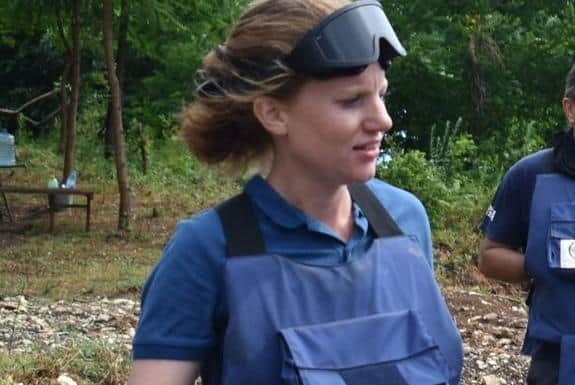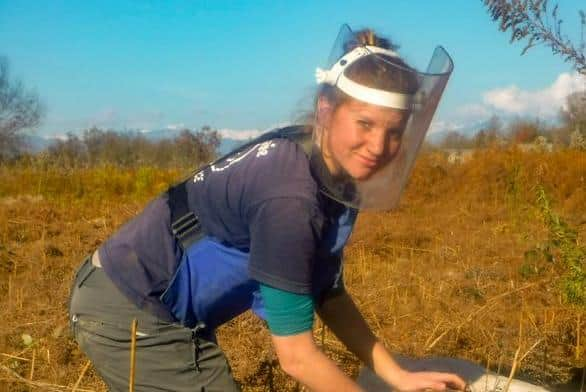International Women's Day: Meet the Leither clearing landmines in some of the world’s most hazardous countries
and live on Freeview channel 276
Mairi, 32, who lives in Leith, said: “I don’t want to paint to negative a picture of the sector, but it’s not been the easiest or smoothest of rides. Unfortunately, I’ve encountered chauvinist and sexist behaviour – quite a lot of it.
“It often surprises men in certain contexts, the questions I ask, and the issues I raise. You can see them think ‘How does she know that?’. It’s because I’m trained, I’ve been in a minefield, I’ve done disposal, and I know what I’m talking about.
Advertisement
Hide AdAdvertisement
Hide Ad“It can be a challenge being a woman in management when you are dealing with local governments or military. I’ve never had anyone refuse to deal with me outright, but you do sometimes sense a rolling of the eyes.


Originally from Broughty Ferry, Mairi is happy to fight against the stereotype of the people in her line of work.
She said: “There can be quite a traditional macho culture, but women are playing a vital part in detecting and destroying nearly 100,000 items – 30 per cent of our team are female.
“Getting women on board and rising up into senior roles was great.


Advertisement
Hide AdAdvertisement
Hide Ad“These women then serve as a role model for the women in their communities, for their children, their friends’ children, so it has a ripple effect.
“In Syria, we have a mixed gender team and that has been crucial to gaining greater access to the communities. In a lot of these cultures, to speak to local women, you need women on the team.
“There is still the stereotype of the sort of person that should be doing our job but that is shifting.”
Mairi admits that even people back home in Scotland are surprised to discover her dangerous job, but says that her parents never attempted to deter her from taking up her role with HALO.
Advertisement
Hide AdAdvertisement
Hide AdShe said: “My parents never tried to put me off and because my brother’s military they couldn’t treat me any differently. It’s never been an issue, and as a woman, there’s never been any limitations over what I want to do.
“My brother is in the army and has done several tours in Afghanistan, so I thought ‘Well, it’s my turn to keep them on their toes’.
“I’m sure working with explosives in places like Syria can be a little nerve-wracking for them, but they are used to the fact that I am not someone that will sit at home and water my plants.”
Mairi joined HALO in 2018 and started her new role as programme manager for Syria in December.
Advertisement
Hide AdAdvertisement
Hide AdShe’s currently overseeing her team of 80 staff from Amman, Jordan.
Foreign Secretary Dominic Raab said: “Scottish aid worker Mairi is a shining example of the brave individuals who are working to remove the global scourge of landmines in some of the most dangerous parts of the world.
“International Women’s Day is an important opportunity to shine a light on the work she and many other female deminers do. The UK Government is pleased to be supporting The HALO Trust in its work training deminers and ridding the world of these deadly devices.”
A message from the Editor:Thank you for reading this article. We're more reliant on your support than ever as the shift in consumer habits brought about by coronavirus impacts our advertisers.
If you haven't already, please consider supporting our trusted, fact-checked journalism by taking out a digital subscription.
Comment Guidelines
National World encourages reader discussion on our stories. User feedback, insights and back-and-forth exchanges add a rich layer of context to reporting. Please review our Community Guidelines before commenting.